Movie Review – Indiana Jones & The Dial Of Destiny
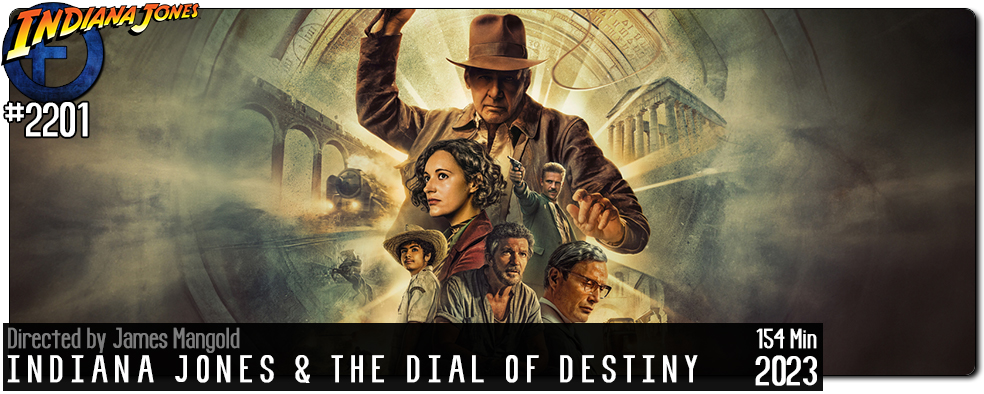
Principal Cast : Harrison Ford, Phoebe Waller-Bridge, Mads Mikkelsen, Antonio Banderas, John Rhys-Davies, Toby Jones, Boyd Holbrook, Ethann Isidore, Karen Allen, Shaunette Renee Wilson, Thomas Kreschmann, Olivier Richters, Mark Killeen, Martin McDougall.
Synopsis: Archaeologist Indiana Jones races against time to retrieve a legendary artefact that can change the course of history.
********
In the aftermath of Lucasfilm’s calamitous Crystal Skull entry into the Indiana Jones franchise in 2008, it would be a fifteen year wait for the next (and final) instalment of the adventures of the world’s favourite archaeologist. With an ageing Harrison Ford reluctantly stepping back into the Fedora and whip, iconography that has a substantially decreased role in The Dial Of Destiny, and a solid journeyman director in James Mangold (Logan, Ford V Ferarri) replacing a far-too-preoccupied Steven Spielberg in the director’s chair, the fifth entry into this franchise – the first under the Disney shingle – sees an elderly adventurer put a final full-stop on his globetrotting antics as he hunts down a mysterious mechanised invention built at the dawn of human civilisation. The film also featured returning players John Rhys-Davies, Karen Allen and composer John Williams, while cinematographer Phedon Papamichael would assume cinematographic duties in aiding Indy’s much anticipated return to the big screen.
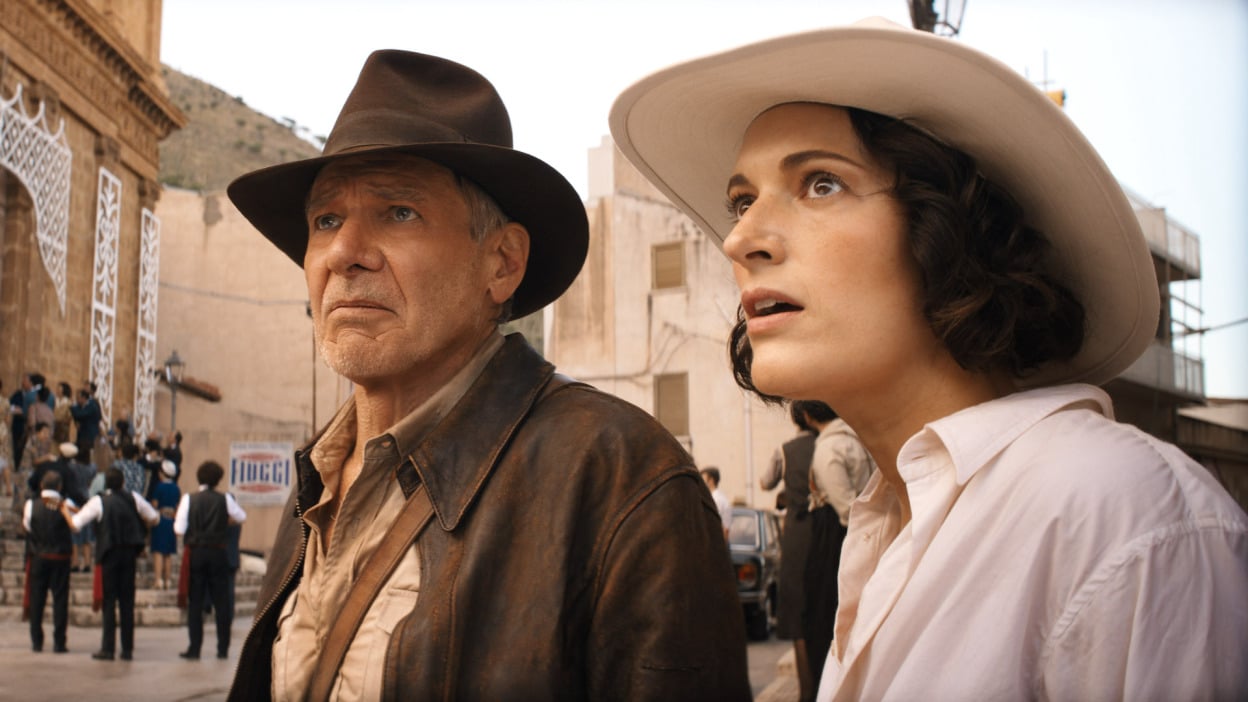
We don’t really ask for much from our Indiana Jones films, us Gen-Xers. We want it to be fun, funny without being silly, and we expect great villains and an exploratory plot along with practical stunts, sets and visual effects where possible; after the laughable monkey-swing sequence in Kingdom Of The Crystal Skull one hoped that Lucasfilm had learned their lesson. It seems they did: The Dial Of Destiny is actually a hugely entertaining film up to a certain point, although I still wouldn’t call it a great Indiana Jones movie, just a good one. It sits well above both Crystal Skull and Temple of Doom as the least likeable, but below the original Raiders and Last Crusade in terms of re-watchability and “capturing the magic” of Indiana’s world-spanning adventures. In Dial of Destiny, Indy and his goddaughter Helena Shaw (Phoebe Waller-Bridge), together with Helena’s streetrat pickpocket sidekick Teddy (Ethann Isidore) try to locate the whereabouts of both pieces of a powerful device invented by Archimedes in ancient Syracuse, in ordert to thwart the evil plans of one-time Nazi and rocket scientist Jurgen Voller (Mads Mikkelsen having an absolute blast) and his CIA-backed affiliates. There’s flashbacks, time travel, train travel and typical adventurous antics as Indy and the pursuing enemy agents cross paths in a variety of exotic locations, and with a protracted (and expensive) sequence to open the film in which a young wartime Indiana Jones (an a hot-wax de-aged Harrison Ford) escapes a soon-to-be-bombed Nazi headquarters you can tell this final blowout adventure is going to pull out all the stops.
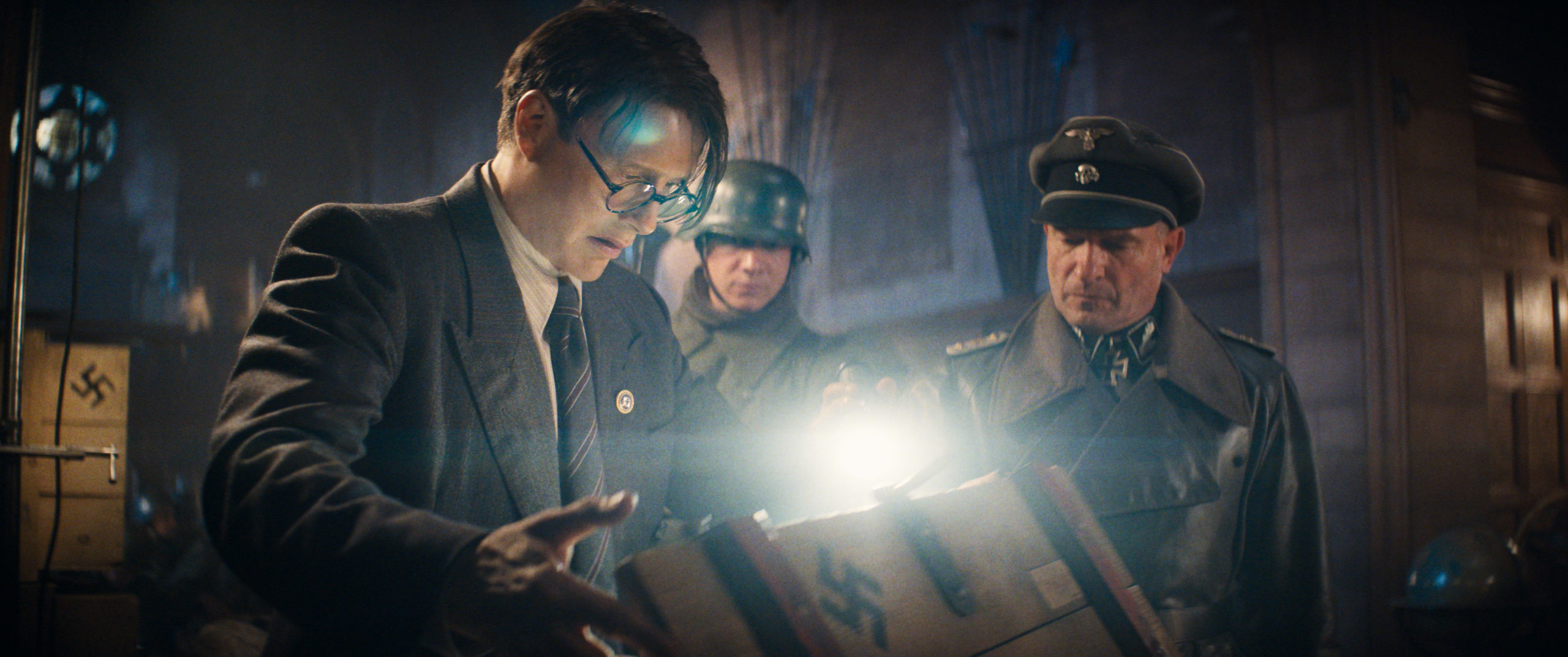
On positive notes, it’s good to see Indiana Jones back on the big screen again. John Williams’ iconic themes find a softer reprise here than I was expecting, almost as if the composer’s own advanced age mirroring that of Harrison Ford’s slow-moving Indy seeped into the music score somehow, but Mangold’s direction is certainly up to the task of delivering rousing spectacle and entertaining action. Mangold is no Spielberg – and my chief criticism on why that’s a flaw in this film will be explained in a moment – but he understand modern action and how to propel a narrative through even the heaviest exposition sequence until the gunfire, fisticuffs and general Nazi-killing antics smother the audience. Harrison Ford looks like he’s at least interested in this movie, unlike the dour, weary performance he gave us in Crystal Skull, and his chemistry with Phoebe Waller-Bridge is actually pretty fun. Even more fun, however, is the addition of Ethann Isidore, in what one suspects is an analogous revamp of the Short Round character: a cheeky kid who stands on his own despite being small of stature and somebody for whom our title hero grows some small affection. Isidore is a wonderful screen performer and I can only hope he has a bright career ahead of him. I mentioned Mads Mikkelsen earlier having a blast here, and he soaks up the screen villainy as a Nazi scientist hoping to return the Reich to its former glory, alongside a truly venomous turn by Boyd Holbrook as Voller’s henchman. Toby Jones’ brief extended cameo in the film’s opening sequence is delightful, while John Rhys-Davies and a short-lived Antonio Banderas I would have liked to see a little more of.
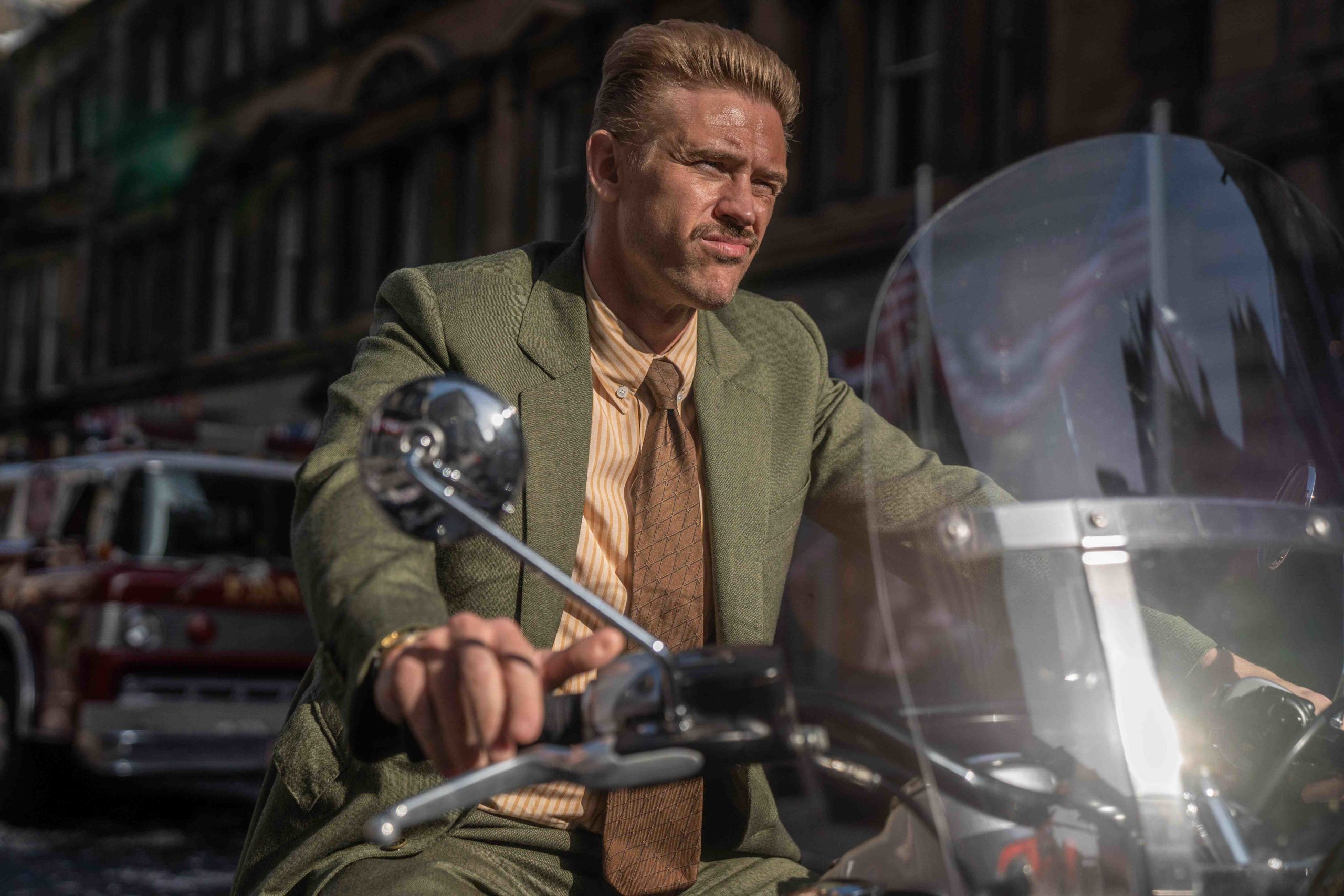
The story upon which the film sits is astutely serialised adventure. Boats, planes, trains, tuk-tuks through Tangier, and even a horseback chase through the canyons of New York City are all platforms upon which to launch Indy’s near-misses and great escapes as he barrels headlong into a lengthy story of family and friendship (although not faith this time), complete with the enthusiasm and engagement the franchise has long aspired to contain. The film’s central MacGuffin is a bit of historical nonsense and science fiction – the “Antikythera” was a real device used as an astronomical alignment calculator by ancient scientists, and unlike its cinematic counterpart actually can’t take you back in time. But it’s an engaging enough idea to warrant Jones and his friends chasing across the globe for it, and is just mysterious enough to ensure Harrison Ford and Waller-Bridge’s breathless exposition of its powers will captivate younger audiences the same way the Holy Grail or the Lost Ark captivated me as a kid. The script weaves in an enormous number of plot contrivances, villain conveniences and other matinee movie tropes, tinged with just enough fun and humour to overcome the more groan-worthy moments the filmmakers ask of the audience. The script was originally penned by Jez and John-Henry Butterworth, and touched up by David Koepp and Mangold himself, and aside from giving us some fine Nazi bad guys does its best to tie off loose strings and plot arcs from the previous films, most notably that of Karen Allen’s Marion Ravenwood, now Marion Jones, soon to be divorced from Indy following the off-screen death of their son Mutt (Shia LeBeouf in very brief photographic form). It doesn’t always work, but when Allen and Ford area together on screen – no matter how briefly – the movie sings.
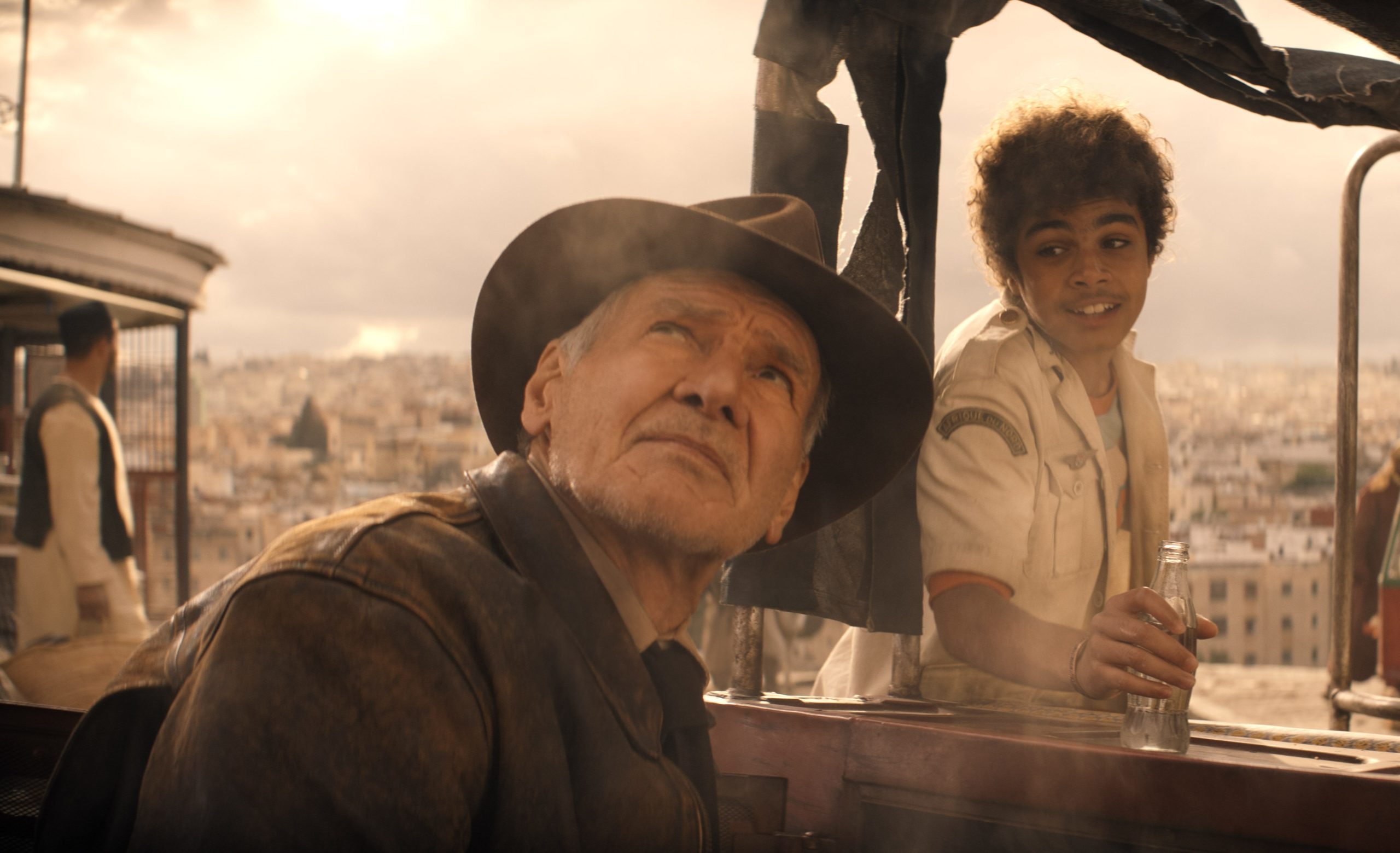
Other than the fact that Harrison Ford looks like he’s about to collapse from exhaustion most of the way through this, The Dial of Destiny suffers from the one thing afflicting most modern action movies flooding cinemas. It’s very busy. Watching the first three Indy films, particularly Raiders, Spielberg’s use of framing and his exquisite use of cutting between shots to keep the story moving in a way that maximised narrative and minimised… well, cuts, you come to a really damning understanding of just how few modern action films use editing to tell a story rather than just to hide the stuntman’s face. Mangold apes Spielberg’s sweeping camerawork as often and as strongly as he can, but even he is reduced to overediting this film, leaving the classical approach Spielberg took with his films and trying to fit Indy and his friends into an all too modern box. Action sequences are energetic and superbly staged, sure, and Mangold understands pacing and expediency of story, but Dial Of Destiny falls too often into the trap of cutting for coverage as opposed to cutting for plot beats. I’m not one to suggest Mangold was the wrong director to take on this material or that the creative choices involved didn’t account for this somehow, but if you compare and contrast the first three Indy films (and, sure, even Crystal Skull) with this there’s a vastly different sense of timing and pace to it all. This isn’t a critical film-killer issue, but it is worth noting that at a purist level, Dial Of Destiny definitely feels the more modern of all the Indy films simply by virtue of its editing, when I’d hoped the clean lines and framing of Spielberg would somehow – perhaps unfairly – be retained.
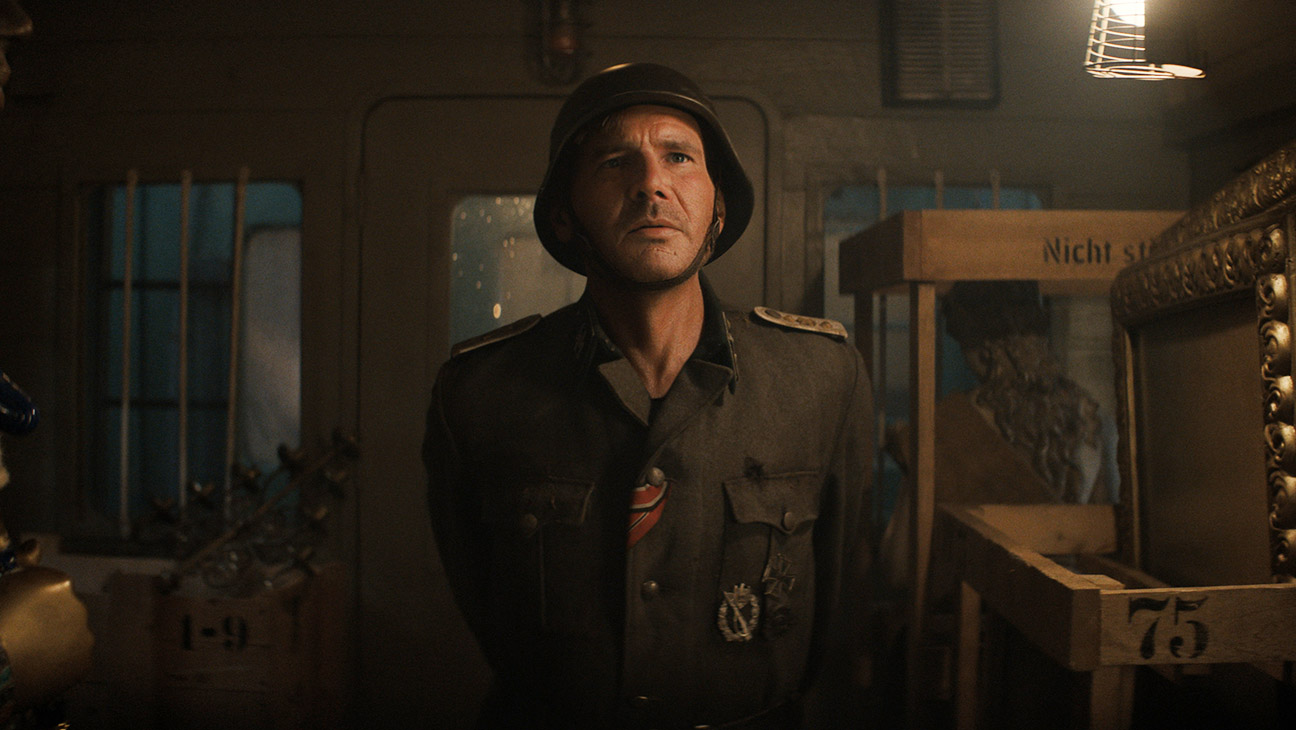
Indiana Jones & The Dial Of Destiny is a thoroughly entertaining action adventure romp that sends Indiana Jones off in silly, spectacular style. The climax of the film is problematic in a number of ways (which I won’t spoil here) in contrast to Indy’s nuke-the-fridge moment in Crystal Skull, but on the whole there’s a lot of fun to be had with this final adventure. The cast all feel like they’re having a great time, the production values are roundly excellent, the score by Williams is superb if not entirely enthusiastic, and watching Indy take down a legion of Nazi scumbags will always, always be cathartic. While hardly the best of the franchise, it’s a welcome addition and easily a positive entry into the property’s lengthy screen history. Definitely worth the wait.
